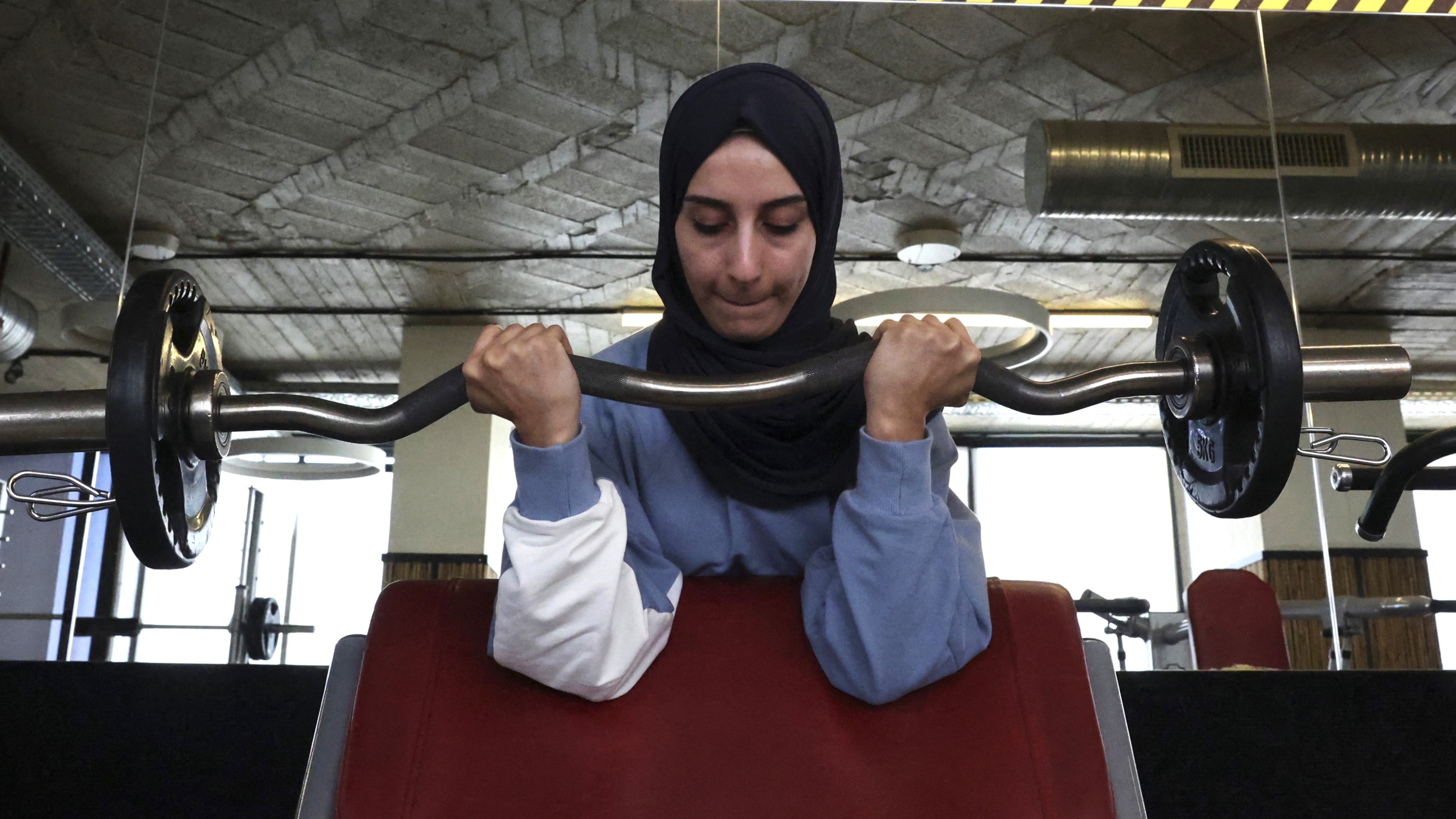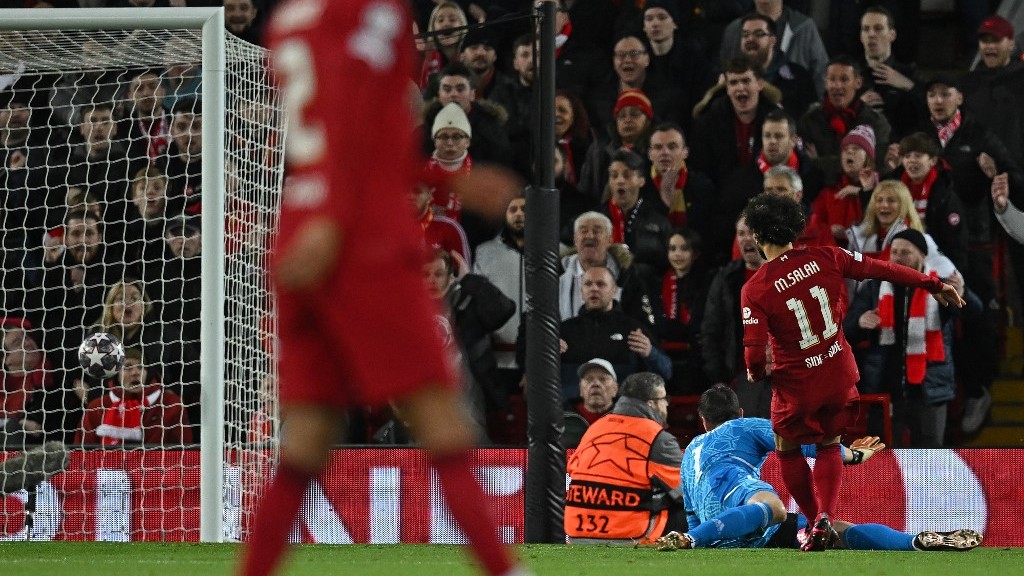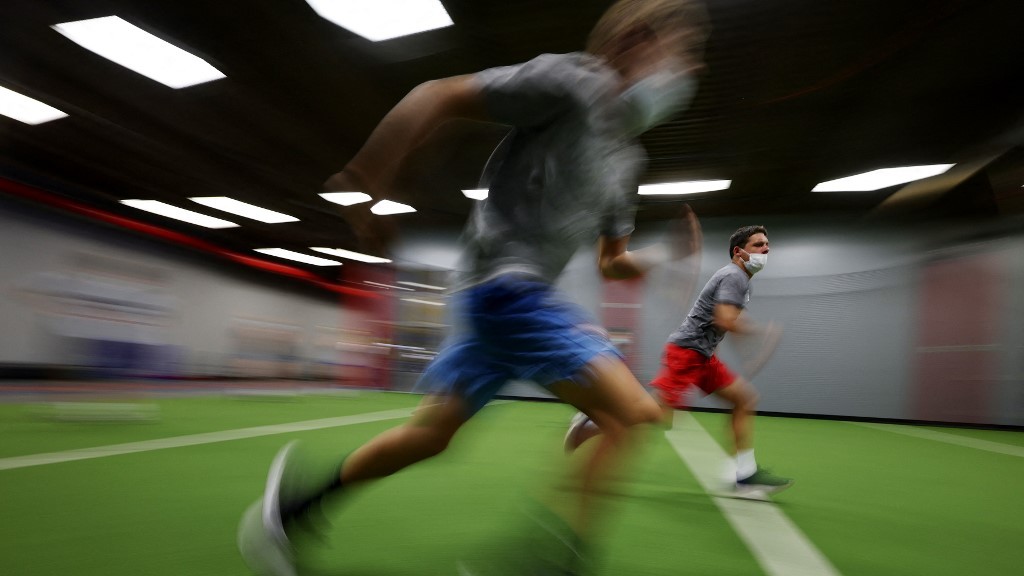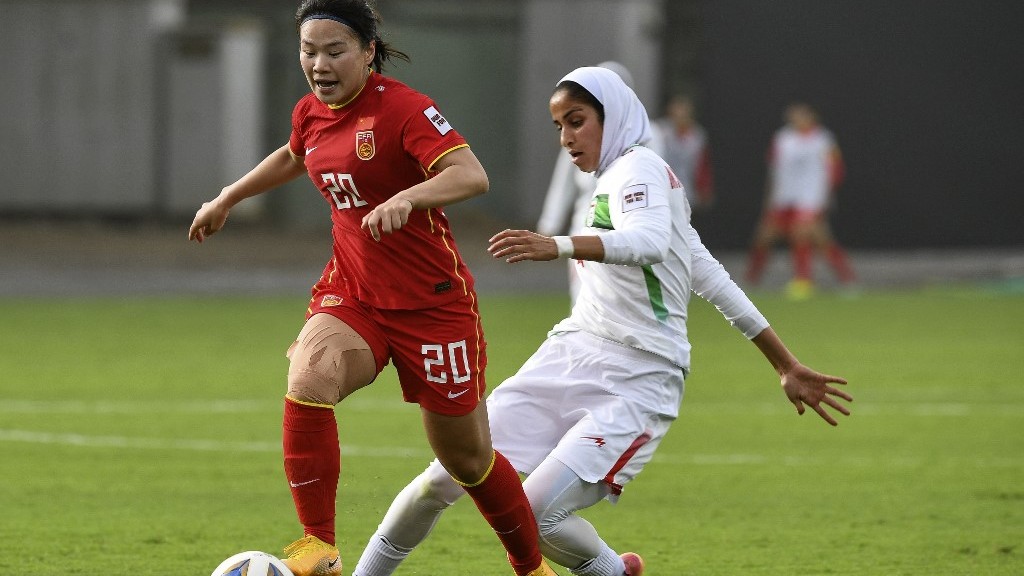Ramadan gains: How do you weight train and exercise during the fasting month?

Every year during Ramadan, Muslims around the world place an emphasis on bettering themselves and engage in extra acts of worship alongside fasting.
The holy month is seen as a chance to increase their spiritual connection to God, distance themselves from the world of materialism and help others.
Fasting is one of the five pillars or Islam. These are obligatory acts considered a necessary part of the faith, alongside the declaration of belief in God, the five daily prayers, acts of charity (zakat) and the Hajj pilgrimage.
Between sunrise and sunset during Ramadan, practising Muslims, except those exempt for health reasons, will abstain from eating or drinking.
For many, including athletes, personal trainers and the physically active, that change to eating schedule means having to adapt their training and recovery habits.
New MEE newsletter: Jerusalem Dispatch
Sign up to get the latest insights and analysis on Israel-Palestine, alongside Turkey Unpacked and other MEE newsletters
To find out how to manage those changes, Middle East Eye spoke to Lloyd Conteh, a 27-year-old Muslim personal trainer based in London.
What are the challenges people who train face during Ramadan?
For people who train regularly or need to stay fit as part of their lifestyle or career, the month of Ramadan may require special discipline and changes.
When sports are a part of your career, taking a month off due to fasting can set you back and impact any progress you’ve made.
“The main challenges involve how long athletes can train at a high intensity for and the adjustment that might have to be made with the times of day that they train,” Conteh explained.
After a day of fasting, Muslims will break their fast with a meal at sunset, called iftar. They will eat again just before dawn in a meal known as suhoor.
The long gap between suhoor and iftar means that those who are physically active must load up on the right type of nutrition to last them the whole day, taking into account any exercise they do.
Slow-release carbohydrates, such as oats, beans, greens and lentils, can help provide steady levels of energy after the fast.
Such foods have a low GI index, meaning that these carbohydrates are broken down over a longer period than high GI foods, such as simple-sugar containing foods like fizzy drinks, crisps and chocolates.
For bodybuilders, making muscle gains during Ramadan will be difficult, but there are ways of mitigating muscle loss from not eating, such as ensuring the body gets enough protein at mealtimes and continuing to train muscles.
Weight training, even during periods of fasting, signals to the body that muscles stores are still needed and should not be used up.
Another major consideration for someone working out during Ramadan is ensuring their blood sugar does not drop too low during workouts.
Both intense cardio and weight lifting on an empty stomach can result in more fat loss but can also use up blood sugar, resulting in exercise-induced hypoglycemia, which causes dizziness and fainting.
“Making sure people eat enough food to be able to recover from previous training sessions is also important,” said Conteh, who is also a bodybuilder.
What times should you train during Ramadan?
For people who work out casually and around their nine-to-five jobs, Ramadan will not disrupt training schedules significantly, as iftar is usually within a few hours of work ending.
Conteh explained that in such cases, changes "don’t need to be drastic at all”.
He told Middle East Eye: “Where possible… people should train closer to the times that they break their fast, whether it’s before or after.”
“Rest will be vital and also occupying your free time to take your mind off of the fact that you cannot eat and drink,” he added.
For professional athletes, for whom a huge part of the day will be dedicated to fitness, the holy month may require them to reschedule heavy training and take some time away from their field.
While Islam allows people to miss fasts and make them up at a later date if they have health issues, there are no exemptions for people based on their livelihoods.
There are exemptions based on travel, however. So an athlete travelling to a fixture or event could choose not to fast on those days and train as normal.
“There are quite a few high-level athletes who don’t fast, especially if the most important periods of their sport are usually in and around the month of Ramadan or if they are prone to injury or sickness,” Conteh said.
What advice can you give in terms of nutrition during Ramadan?
For people who are looking to stay on top of their nutrition during Ramadan, it’s best to keep things simple when it comes to food choices.
“Make protein the priority and, in terms of your carb intake, it's better to have the more carb-heavy meals closer to iftar rather than closer to suhoor, and lessen the amount of carbs per meal the closer you get to sunrise,” said Conteh.
A qualified nutritionist, Conteh specialises in body transformation and recommends that people up their intake of leafy green vegetables, such as spinach, as these help slowly release carbohydrate stores throughout the day.
“One of the most important things is to include fluid-rich fruits to increase your hydration levels, things like melons, oranges, and grapes,” he said.
“Excessive salt, caffeine and sweets will heighten levels of dehydration.”
How do you avoid over exercising during Ramadan?
According to Conteh, it is important that people understand their own limits and "listen to their body" if they are exercising while fasting.
Every person is different and there is no "one size fits all" approach to how people work out, he added.
'It’s a month of trying to be as grounded and as spiritually peaceful as possible'
- Lloyd Conteh, personal trainer
“For example, my body is able to handle the same levels of training intensity no matter what time I train during Ramadan. But for others, they might find that if they train midday, they might not be able to keep up or do the things they would typically do," Conteh said.
Generally, Conteh suggested that it is best for people to train an hour after breaking your fast with a light meal.
As well as allowing time for exercise and fitness during the holy month, he also encouraged people to allow space in their schedules for spirituality and strengthening one’s faith.
“It’s a month of trying to be as grounded and as spiritually peaceful as possible.”
How can you prevent muscle loss?
Ramadan can be a cause of concern for both those looking to maintain weight and those trying not to put it back on.
Overeating and eating the wrong kind of food can result in rapid weight gain during the month, especially when combined with a lack of exercise.
While not taking in enough calories, particularly protein, can result in weight loss through muscle atrophy.
The month can be a nerve-wracking time for professional athletes but according to Conteh, there is an easy formula to prevent such losses.
“Keep your protein intake in a range of 1.54g to 1.8g of protein (per kilogram) of bodyweight,” he said.
“Keep your training intensity high, continue training as hard as possible, but if you feel like your body cannot handle it, then you should do one to two less sets per exercise in your workout routine.”
From his experience, the only way to maintain muscle and strength is to train at a high intensity, which tells your body that it needs all of the muscle that it has.
Lloyd Conteh is a London-based personal trainer and bodybuilder.
Middle East Eye delivers independent and unrivalled coverage and analysis of the Middle East, North Africa and beyond. To learn more about republishing this content and the associated fees, please fill out this form. More about MEE can be found here.







